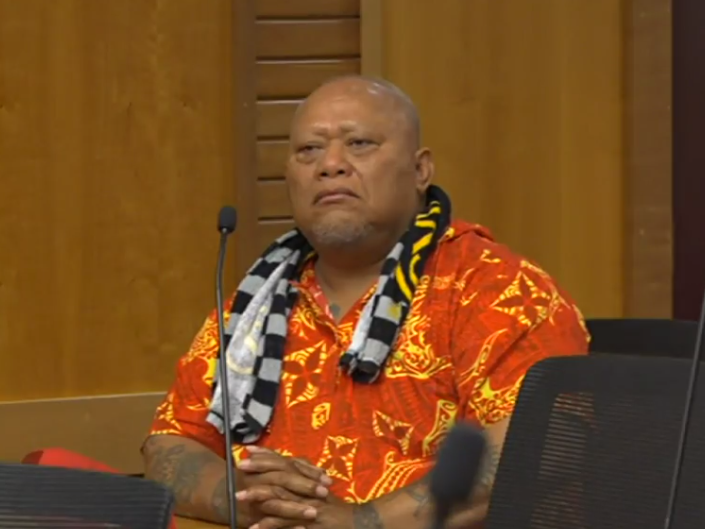Samoan chief jailed in New Zealand for trafficking and enslaving his own neighbours for 25 years
Joseph Auga Matamata forced fellow Samoans to work without pay and beat them if resisted

A Samoan chief who trafficked some of his neighbours into New Zealand before enslaving them for decades has been sentenced to 11 years in prison.
Joseph Auga Matamata, 65, was convicted of both trafficking and slavery after a five-week trial in New Zealand in March.
As well as serving over a decade behind bars, Matamata must also pay NZ$180,000 (about £93,000) in compensation to his victims, the judge Justice Helen Cull ordered.
Matamata, who holds the traditional position of a matai or chief in Samoan culture, brought over 13 of his fellow Samoans, most of them people who lived in his own village back home, to New Zealand between 1994 and last year.
He paid for their flights and told them they would be sent to school or found jobs. But when they arrived they were imprisoned in his compound in Hastings, close to the North Island town of Napier.
Many were forced to then work 14-hour days as agricultural labourers but any money earned was pocketed by Matamata.
The chief’s victims had earlier told the court how he would beat them with pieces of wood, a broom or a power lead, and on one occasion threw a pair of secateurs at one of his victims, embedding the implement in his arm.
Those enslaved by Matamata were forbidden to speak to anyone outside his property or even contact their families back in Samoa without his permission.
The 25 years of abuse only came to light last year when one of the victims persuaded another Samoan man he met at a plant nursery to report him to the police for overstaying his visa.
When officers arrived at Matamata’s home to arrest the slaves for immigration offences, they were then told by the imprisoned Samoans of their plight, prompting one of the largest immigration investigations even undertaken in New Zealand.
The case was especially difficult because of Matamata’s position as a matai. The prosecutor Clayton Walker told the jury during the trial that his victims “trusted him completely” because of his status in Samoan society.
“That trust was misplaced. He abused his matai position,” he said.
Many of the victims, who gave evidence behind screens during the trial in Napier, said they were too afraid to complain about their treatment at the hands of Matamata and that his status as a matai meant he commanded absolute obedience.
The 65-year-old denied all the charges, insisting the men and women found locked up behind tall fences at his home had all simply overstayed their holiday visas.
His chiefly status meant he had to provide for the entire community and in Samoan culture it was normal for all wages to be pooled, his lawyers argued.
But Judge Cull said his crimes had been “abhorrent” as she sentenced him to 11 years in prison on Monday. The state has also seized half of Matamata’s assets in an effort to recover the money needed to cover the compensation order.
Back in the Samoan village where both Matamata and most of his victims came from, locals were shocked to discover the chief’s offences.
Some told The Guardian they could not connect the man they knew with the slaveowner and trafficker he became, while others worried the case would tarnish the reputation of the community.
Matamata’s extended family have also given a substantial cash sum to the village council in a traditional apology for his behaviour.
Join our commenting forum
Join thought-provoking conversations, follow other Independent readers and see their replies
Comments